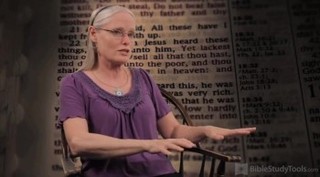
- Recent Translations
- All Translations
Esther 1:9
Share
Settings
Queen Vashti’s Refusal
9 Queen Vashti also gave a banquet for the women in the royal palace of King Xerxes.Esther 1:9 Meaning and Commentary
Also Vashti the queen made a feast for the women
&c.] For it was not customary with the Persians, nor other eastern nations, to admit of women to their festivals F13, but they feasted by themselves. Who Vashti was is not known with any certainty. Bishop Usher, who takes Ahasuerus to be Darius Hystaspis, thinks Vashti was Atossa, the daughter of Cyrus, whom he married. The Targumist says, she was the daughter of Evilmerodach, the son of Nebuchadnezzar. Her name seems to be the same with Vesta, a deity worshipped by the Persians, as Xenophon {n}, and signifies vehement fire, which was in great veneration with them; and therefore this queen is most likely to be of Persian original: she kept her feast
in the royal house which belonged to Ahasuerus;
her guests not being so many, there was room enough in the king's palace for them, and where it was more decent for them to be than in the open air in the garden, and exposed to the sight of men.
F13 Justin c Trogo, l. 41. c. 3.
F14 Cyropaedia, l. 1. c. 23.
Esther 1:9 In-Context
Videos for Esther 1:9
